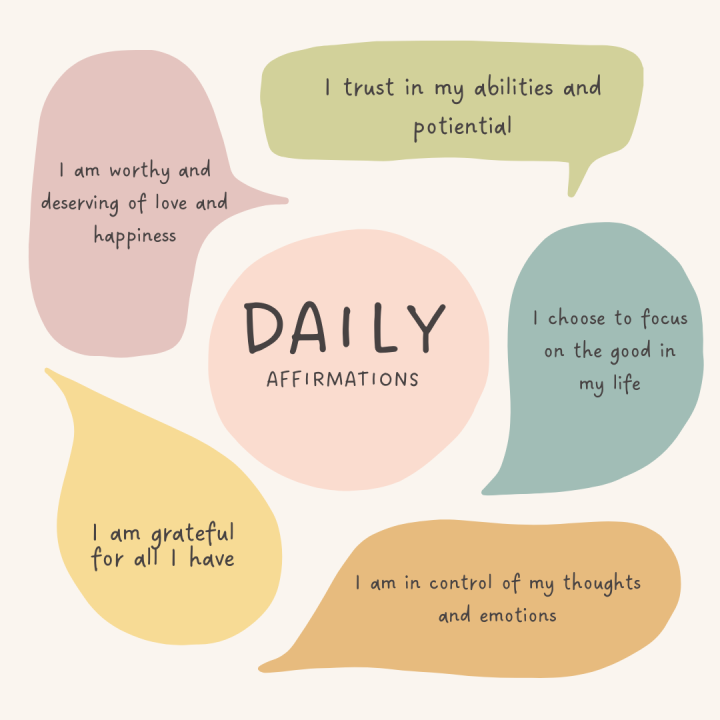Science shows self-affirmations can shift our mindset and behavior.
By Nir Eyal
KEY POINTS
- Self-affirmation is an act that demonstrates one’s adequacy,
- Research showed that affirmations can improve problem-solving abilities under stress.
- Self-affirmations remind us of who we are and what’s important to us, helping us conquer internal triggers.
Even if you’re not sure about the power of morning affirmations, the science behind them is—when used correctly, self-affirmations can significantly affect your mindset and behavior. They have the power to rewire your brain, helping you break free from negative thought patterns and instill healthier habits.
In a 2015 study published in the journal Social Cognitive and Affective Neuroscience, researchers used magnetic resonance imaging (MRI) to observe brain function during self-affirmation tasks. They found that the brain’s ventromedial prefrontal cortex — a hub that connects the networks for emotional processing, decision-making, memory, self-perception, and social cognition — becomes more active when we process self-relevant information in a positive light, which affirmations encourage.
Another study, published in PLOS One in 2013, showed that affirmations can improve problem-solving abilities under stress. Participants who were asked to rank their values and write about why the top value was important to them (a form of self-affirmation) showed less of a stress response and performed better on a problem-solving task than those who didn’t self-affirm.
Plenty of other existing studies also suggest that morning affirmations can have a positive impact on our thoughts, emotions, and actions. We can use them to change our mindset and, as a result, our reality.

What Is Self-Affirmation?
Self-affirmation is an act that demonstrates one’s adequacy, according to the 2014 study “The Psychology of Change: Self-Affirmation and Social Psychological Intervention.”
Self-affirmation theory says that people have a “basic need to maintain the integrity of the self, a global sense of personal adequacy.” Threats to our self-integrity cause stress — one of many internal triggers, or negative feelings — and lead to “self-protective defenses,” like distraction, that inhibit performance and growth.
Self-affirmations help us handle these threats to our self-integrity by having us focus on our core values, or attributes of the people we want to be. Repeating affirmations “brings about a more expansive view of the self and its resources, weakening the implications of a threat for personal integrity,” according to the study.
Put simply, self-affirmations remind us of who we are and what’s important to us, giving us the perspective we need to conquer internal triggers. They help us to avoid being our own worst critics in difficult situations and instead encourage us to talk to ourselves the way we might talk to a friend.
Using self-affirmations, we can change the way we see ourselves to get rid of self-limiting beliefs. They help us become more self-compassionate and, therefore, more resilient.
Choosing the Best Morning Affirmations for You
The best morning affirmations will be different for every person. Your affirmations have to resonate with you, align with your goals, and inspire positive emotions. Think about what healthier habits you want to build and create affirmations that affirm these intentions.
Psychologist Lauren Alexander recommends that affirmations be “something positive about a certain quality or a good choice you’ve made, or just something affirming of your self-worth.” She also suggests finding an affirmation that acknowledges your discomfort but reinforces the skills you have to deal with it, like “This situation is difficult, but I have the skills and abilities to deal with it.”
David Creswell, a psychology professor at Carnegie Mellon University, told The Washington Post that effective affirmation “is more about really identifying, in really concrete ways, the kinds of things about you that you really value.”
To get you started, here are a few of the tried and true morning affirmations I created to help you maintain your integrity:
- I am at peace with my life as it is right now.
- I am capable of creating my own opportunities and experiences.
- I am comfortable with the unknown and trust that everything will fall into place.
- I am confident in my ability to make the best decisions for myself.
- I am confident in my decisions and trust my intuition.
- I am content with my choices and where I am in life.


[…] Related: Daily Affirmations Work […]